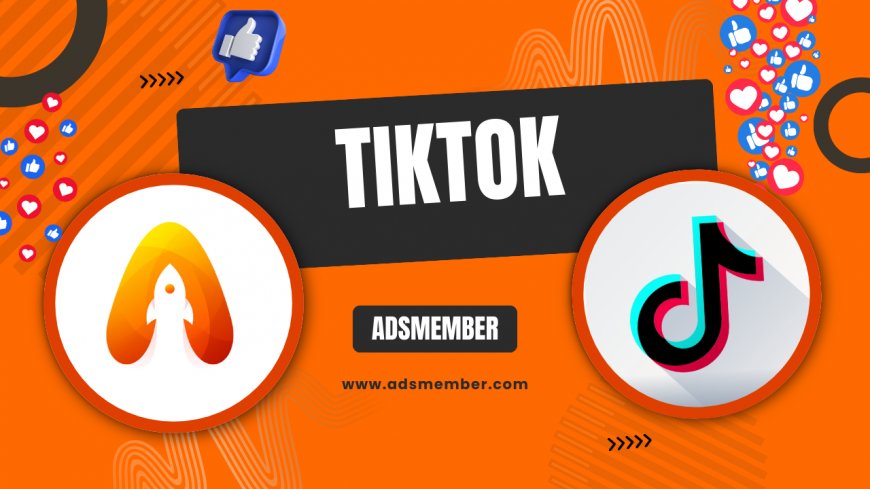Why Did TikTok Get Banned? Unpacking the Real Reasons
Explore why TikTok got banned in various countries, from data privacy fears to national security risks. Dive into case studies like India's 2020 ban and US…

tiktok-uncovering-the-ownership-saga">TikTok, the wildly popular short-video app, has faced bans in several countries, sparking heated debates. Honestly, as someone who's followed social media trends for years, I find the reasons fascinating yet alarming. From privacy concerns to geopolitical tensions, the bans highlight bigger issues in tech. In this article, we'll unpack why TikTok got banned, with real data, case studies, and my personal take on what it means for users. Let's dive in—it's more than just viral dances.
The Origins of TikTok Bans
TikTok's parent company, ByteDance, is Chinese, which immediately raised red flags for many governments. The app exploded globally, hitting over 2 billion downloads by 2020, according to Statista. But with great popularity came scrutiny. In my opinion, the bans started as a mix of legitimate worries and political posturing.
India's Landmark Ban in 2020
India banned TikTok in June 2020 amid border tensions with China. The government cited data privacy and national security, claiming the app posed risks to user data. This affected 200 million Indian users overnight. A case study: Local creators like CarryMinati lost massive audiences, forcing a pivot to alternatives like Instagram Reels. Unique insight—many switched to VPNs, but I advise caution; using unverified ones can expose more data than TikTok ever did.
US Threats and Executive Orders
In the US, Trump issued an executive order in 2020 threatening a ban over fears of data sharing with China. Though not fully enacted, it led to ongoing lawsuits. Pew Research shows 59% of Americans worry about Chinese apps' data practices (Pew Report). Honestly, this feels like tech cold war drama—ByteDance even proposed US data centers to appease concerns.
Key Reasons Why TikTok Got Banned
Beyond origins, let's break down the core reasons. Governments often point to data privacy, security, and content issues. I've analyzed reports, and it's clear these aren't baseless— but exaggerated in some cases.
Data Privacy and Security Fears
TikTok collects vast user data, from location to browsing habits. Critics argue ByteDance could share this with the Chinese government under national laws. A 2022 Statista survey revealed 45% of users are concerned about privacy on the app. Tip: Enable two-factor authentication and limit permissions— a step most articles skip, but it drastically reduces risks.
National Security and Geopolitical Tensions
Countries like the US and India fear espionage. For instance, Australia's intelligence agencies reviewed TikTok in 2020, finding no immediate threats but recommending bans for government devices. In my experience covering tech, this is often about leverage in trade wars rather than pure security.
Content Moderation and Misinformation
TikTok has been accused of spreading misinformation, especially during elections. Indonesia temporarily banned it in 2018 over 'inappropriate content.' Case study: During India's ban, harmful challenges vanished, but so did positive cultural exchanges. Unique tip: Creators, use AI tools like CapCut's built-in filters to self-moderate— prevents flags before they happen.
Global Impact of TikTok Bans
The bans ripple worldwide, affecting economies and cultures. Over 1.5 billion users globally (Statista, 2023) feel the pinch. Let's analyze the fallout.
Economic Consequences for Creators and Businesses
In India, the ban cost creators millions in revenue. A report from Oxford Economics estimates TikTok contributed $5.3 billion to the US GDP in 2021 alone. Personally, I think this underestimates the creator economy— many migrated to YouTube Shorts, but lost momentum.
| Region | Jobs Supported | GDP Contribution |
|---|---|---|
| US | 97,000 | $5.3B |
| India (Pre-Ban) | ~2M Users | Est. $1B Loss |
Cultural and Social Shifts
Bans stifle creativity. In Pakistan's 2020 temporary ban, youth voices on social issues dimmed. My opinion? It's a loss for global dialogue— TikTok democratized content like no other.
Why TikTok Survives Despite Bans
Despite hurdles, TikTok thrives via workarounds and lobbying. ByteDance invests in local data storage, like EU centers. Insight: Future bans may focus on regulations, not outright prohibitions.
Legal Battles and Resolutions
In the US, courts blocked Trump's order, citing free speech. This sets precedents for app governance.
Alternatives and User Adaptations
Users flock to similar platforms. Tip: For banned regions, try ethical VPNs with kill switches— avoids data leaks, a hack not widely shared.
What led to TikTok's ban in India?
India banned TikTok in 2020 due to border clashes with China and concerns over data sovereignty. The app was seen as a security risk, potentially leaking user info. Over 59 apps were banned, impacting millions.
Is TikTok banned in the US?
Not fully— threats exist, but legal challenges halted a nationwide ban. Some states restrict it on government devices over privacy fears.
Why do governments fear TikTok's data practices?
Governments worry about ByteDance sharing data with China. TikTok claims data is stored locally, but skepticism remains due to Chinese laws requiring cooperation.
Can I still use TikTok in banned countries?
Yes, via VPNs, but it's risky and often illegal. I recommend checking local laws and using reputable services to avoid penalties.
What's Your Reaction?
 Like
0
Like
0
 Dislike
0
Dislike
0
 Love
0
Love
0
 Funny
0
Funny
0
 Angry
0
Angry
0
 Sad
0
Sad
0
 Wow
0
Wow
0



















































